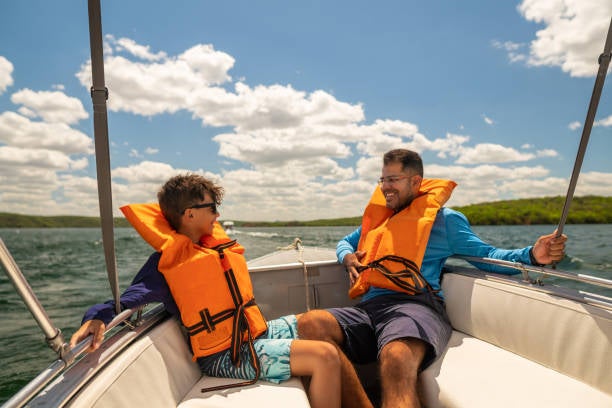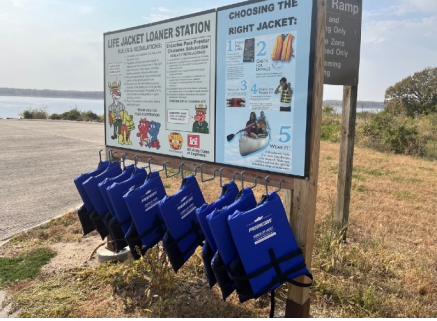Every year when summer outdoor activities heat up, the U.S. Army Corps of Engineers issues reminders for the public to use life preservers when out on the water; this year, however, it is particularly important due to lingering damage caused by Hurricane Helene.
This year, the Corps of Engineers Natural Resources Education Foundation is partnering with Progressive Insurance, the leading provider of boat insurance, to provide significant support of life jackets to help reduce preventable drownings at lakes and river projects across the country.
The program includes more than 5,450 life jackets for adults that will be used at USACE life jacket loaner stations. The life jackets are being procured and distributed to USACE locations that have experienced the most water-related public recreation fatalities.
Life jackets will be available for adults to borrow at no cost and returned at the end of the day.
However, not only is wearing life jackets on boats the law, Park Ranger David Quebedeaux says wearing life preservers when on the water is just common sense.
“You can get a cheap jacket for $5 or you can spend $100 on one of the new stylish ones. You have to ask yourself, how much is my life, or my child’s life, worth?” Quebedeaux said.
This year, boaters will experience more hazards than usual as fallen tree parts continue to float around cove areas and some can even make it into the channel where boaters tend to drive on the water much faster.

Several popular state parks and facilities remain closed and, according to Quebedeaux, it is unlikely that those campgrounds and recreation areas will be able to reopen this year.
Those parks include Modoc Campground, Ridge Road Campground, Petersburg Campground and Lake Springs (Day Use) Recreational Area.
“We have been able to use in-house labor to get West Dam back open. The electrical systems and shelters are all up and running, but it is going to take time and more funding before we can get the big campgrounds ready for public use,” Quebedeaux said.
Having this many campground spaces closed means that people may search for alternative camping areas or sleep on their boat. Quebedeaux says sleeping on a boat that is not designed for such is dangerous and there are areas that might be enticing to use as a camping spot, but are illegal.
“Basically, you may not camp anywhere except designated camping areas, if you are caught camping on the many islands out on the lake, you will be asked to leave and cited,” Quebedeaux said.
Not only do the islands have no sanitary systems or electrical hook-ups, but encounters with wildlife, such as venomous snakes are common and if someone is bitten, they would be miles away from any possible help.
“This is the first big weekend of the summer season, so even the best swimmers are going to be rusty or a bit out of shape. We want people to have fun and to be safe so that they can come back the next weekend and do it all over again,” Quebedeaux said.
Scott Hudson is the Senior Investigative Reporter, Editorial Page Editor and weekly columnist for The Augusta Press. Reach him at scott@theaugustapress.com









